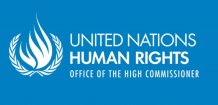
Watch a recording of the event.
Dr Addo presents to the 3rd Committee of the UN General Assembly
Dr Addo's report focused on national action plans for the implementation of the United Nations Guiding Principles on Business and Human Rights.
Such plans were sufficiently flexible to allow States to respond to a range of business and human rights challenges. Developing a national action plan, he continued, should be based on the coordinated involvement of all relevant stakeholders, and should include an analysis of existing practices and remaining gaps in laws, regulation, policy and action.
Turning to the structure of a national action plan, he said, States might wish to develop a stand-alone document dedicated to business and human rights, or to include specific chapters on those issues to be included in government strategies. The Working Group took a strong view that all plans should be underpinned by the key human rights principles of non-discrimination and equality, participation and inclusion, accountability and the rule of law.
Furthermore, it was a pleasing development that the number of national action plans was increasing, as national human rights institutions and civil society organizations were also engaging in that area. Concluding, he said the Working Group would continue to support efforts and to use its convening power to bring stakeholders together on the issue of national action plans.
In the interactive dialogue that followed, questions were asked about how best to mainstream human rights into business practices, resources for developing national action plans and cooperation between the Working Group and States. Questions also dealt with regulatory discrepancies between countries, and ways to incentivize business enterprises to engage with human rights organizations. Mr. ADDO said that from the beginning of its mandate, the Working Group had prioritized reaching out to businesses. “Companies will listen to each other,” he said, so the Group had established relationships with business associations that could act as catalysts in disseminating the guiding principles. The forthcoming Business and Human Rights Forum in Geneva would include participants from the business community.
The development of national action plans was an organic opportunity to involve businesses and persuade them to engage with human rights. Therefore, the Working Group encouraged States to focus on a multi-stakeholder process in developing action plans. A number of countries had initiated mechanisms to oversee compliance, he added, and it was vital that business enterprises reported on their overall international activities. That would ensure oversight, he said, noting that host States and home States must begin sharing information.
Participating in the dialogue were representatives of Norway, United States, Switzerland, United Kingdom and South Africa, as well as the European Union’s delegation.
Norway, Switzerland, the United States of America, the European Union and the United Kingdom welcomed the work of the WG and the particular focus on national action plans, and the importance of involving non-state actors in its development. USA noted that its President had recently announced that the US Government would develop a national action plan for responsible business conduct. South Africa asked the Chair of the WG about the alignment of the two recent resolutions adopted at the 26th session of the Human Rights Council, and also enquired about capacity building support for the development of national action plans in the African region.
Date: 30 October 2014
